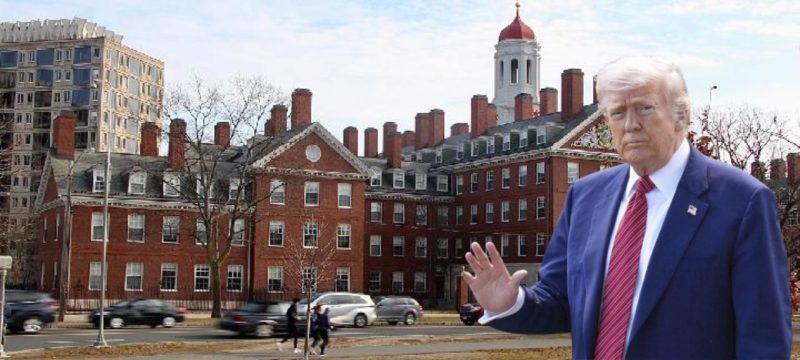A U.S. federal judge on Friday temporarily blocked the Trump administration from rescinding Harvard University’s authority to enroll international students, marking a significant moment in the ongoing tensions between the White House and academic institutions resisting political influence.
Judge Allison Burroughs of the U.S. District Court issued a short-term order preventing the enforcement of a policy that threatened thousands of international students with forced transfers. Harvard had argued this move was part of a broader campaign by the administration to punish the university for maintaining its academic independence.
Read more: US Imposes Ban on Foreign Student Admissions at Harvard University
The Justice Department and the Department of Homeland Security have yet to respond publicly and may still appeal the ruling. The decision, however, offers immediate protection to over 7,000 foreign students who were facing uncertainty.
Harvard filed a lawsuit in federal court earlier that same day, condemning the policy as an outright violation of the U.S. Constitution and federal laws. The university emphasized the severe and immediate disruption this move would cause to its operations and its diverse student body.
“Harvard is not Harvard without its international students,” the university stated, citing that nearly 6,800 of its current students come from abroad, making up about 27% of its total enrollment.
The Department of Homeland Security, under Secretary Kristi Noem, had announced the termination of Harvard’s Student and Exchange Visitor Program certification effective from the 2025–2026 academic year. This announcement came just a day before the court’s intervention.
In her order, Judge Burroughs said Harvard had presented sufficient evidence of potential harm to warrant a temporary halt. She scheduled further hearings for May 27 and May 29 to determine the future of the case. Burroughs, an Obama-era appointee, emphasized the urgency and seriousness of the issue.
The Trump administration’s push against Harvard aligns with its broader efforts to pressure independent institutions—such as universities, media outlets, and courts—to conform to its political agenda. These efforts have included threats of deportation for foreign students involved in pro-Palestinian protests, punishment of law firms opposing Trump, and public suggestions to impeach judges over unfavorable immigration rulings.
Harvard has been a consistent critic of the Trump administration and has previously taken legal action to reclaim roughly $3 billion in frozen or withdrawn federal funding.
Other universities have chosen to cooperate with Trump’s demands. For instance, Columbia University agreed to overhaul its disciplinary systems and reassess Middle Eastern studies curriculum after losing $400 million in funding over accusations of insufficient efforts against antisemitism.
Before the judge’s ruling, White House spokesperson Abigail Jackson dismissed Harvard’s legal challenge, criticizing the university for allegedly prioritizing lawsuits over campus safety.
“If only Harvard showed the same urgency in addressing anti-American and antisemitic behavior on its campus, they wouldn’t be in this position,” Jackson remarked.
Meanwhile, Secretary Noem defended the policy by accusing Harvard of promoting antisemitism and ties to foreign governments. In a letter included in Harvard’s complaint, she claimed the university had created an unsafe environment for Jewish students and demanded extensive records on foreign students, including protest involvement over the past five years, as a condition to reinstate its certification.
Harvard responded forcefully, calling Homeland Security’s actions arbitrary and unconstitutional. University President Garber stated in a letter to the community that the federal government’s actions were retaliatory and part of an ongoing attempt to impose unlawful control over the university’s curriculum, faculty, and student body.
The university warned that the revocation would upend admissions for thousands and disrupt numerous academic programs, research labs, and graduation plans. Harvard’s complaint argued that the federal government’s move infringed on First Amendment protections by coercing universities to sacrifice their right to academic freedom and independent thought.









